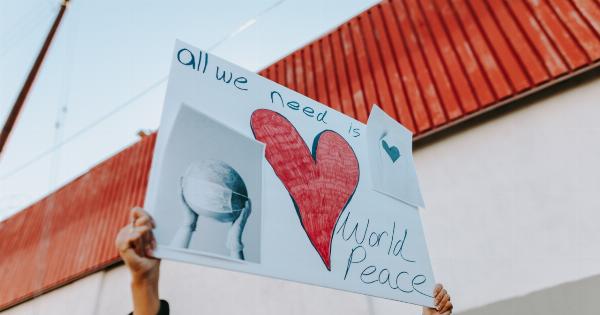The COVID-19 pandemic has brought drastic changes to our lives, altering our perspective on what truly matters. As lockdowns and restrictions took hold across the globe, we were forced to reassess our materialistic attitudes.
From excess to essentials, this article explores the profound impact of the pandemic on our consumerist behaviors and the lessons we have learned along the way.
The Rise of Materialism
In recent decades, the world has witnessed an unprecedented surge in materialistic attitudes. The pursuit of possessions and wealth became a societal norm, driven by advertising, social media influence, and the desire for status.
Accumulating material goods became synonymous with success and happiness, driving people to constantly seek more.
The Illusion of Happiness
However, the pandemic has exposed the empty promises of materialism. As people were confined to their homes and faced economic uncertainty, the fleeting happiness derived from material possessions lost its appeal.
The endless cycle of consumption and acquisition was called into question, revealing the true sources of fulfillment and contentment.
The Shift in Priorities
Amid the chaos and uncertainty, the pandemic forced us to reevaluate our priorities. The essentials such as health, safety, and human connection took precedence over material possessions.
The fragility of life became evident, and people began to cherish what truly mattered. Family, relationships, and experiences gained newfound importance, while material goods were relegated to the background.
The Sustainability Awakening
Another key impact of the pandemic was the awakening to the importance of sustainability. As the world paused, pollution levels dropped, and nature rejuvenated.
This collective realization highlighted the devastating consequences of our excessive consumption. The focus shifted towards mindful consumption, favoring quality over quantity and environmentally friendly choices.
Embracing Minimalism
With the pandemic-induced lifestyle changes, many individuals found solace in embracing minimalism. The concept of “less is more” gained momentum as people sought to declutter their lives physically and emotionally.
Minimalism promoted intentionality and mindful decision-making, allowing individuals to create space for what truly matters.
Reevaluating Financial Priorities
The economic impacts of the pandemic also led people to reevaluate their financial priorities. With job losses, pay cuts, and uncertainty ahead, the necessity for financial stability became paramount.
Saving for emergencies and building a sustainable financial future took precedence over impulsive spending and accumulating unnecessary debts.
The Importance of Mental Well-being
The pandemic brought mental health to the forefront, emphasizing the significance of well-being over material possessions. As people faced isolation, anxiety, and stress, the need for self-care and mental well-being became evident.
Activities such as meditation, exercise, and connecting with loved ones became essential for maintaining mental equilibrium, outweighing the transient happiness derived from material goods.
Redefining Success and Happiness
The pandemic reshaped our understanding of success and happiness.
The relentless pursuit of material possessions and external validation lost its allure, as people realized that true success and happiness lie in personal growth, meaningful connections, and a sense of purpose. This shift in perspective allowed individuals to redefine their goals and find contentment beyond materialistic achievements.
Resisting the Return to Excess
As the world slowly recovers from the pandemic, there is a risk of slipping back into excess. The allure of consumerism and the pressure to “keep up” may tempt individuals to revert to their old ways.
However, the lessons learned during the pandemic provide an opportunity to resist this return to excess and maintain the newfound balance between materialism and essentialism.
Conclusion
The COVID-19 pandemic has had a profound impact on our materialistic attitudes, shifting our focus from excess to essentials.
It forced us to reevaluate our priorities, embrace minimalism, and recognize the importance of sustainability, mental well-being, and meaningful connections. As we move forward, it is vital to remember these lessons and prioritize what truly matters, nurturing a more balanced and fulfilling approach to life.





























